‘The Hard Pillow of the Dying Hero’: Highlights from The American Civil War Collection
This month’s release of imprints from The American Civil War Collection, 1860-1922: From the American Antiquarian Society includes the personal account of a formidable nurse and her care of wounded and dying Union Army soldiers, an address to a reunion of Confederate veterans in 1895, and a first-person description of a southern woman’s travails in a Union prison in the post-war era.
In Hospital and Camp: A Woman’s Record of Thrilling Incidents among the Wounded in the Late War (1869)
By Sophronia E. Bucklin
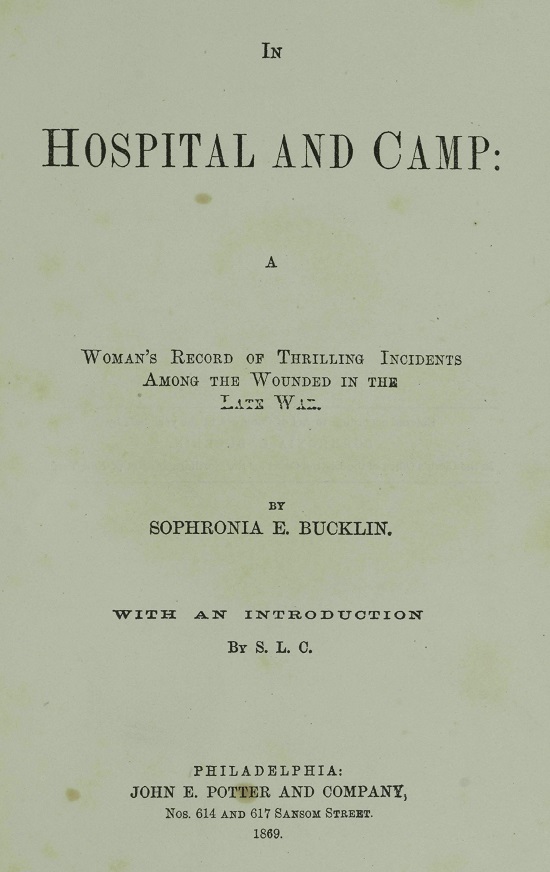
Sophronia Bucklin (1828-1902) was an unmarried seamstress born in 1828 and living in upstate New York when the war began. She was determined to serve, as her opening paragraph of this account makes clear.
When, in the complexity of national affairs, it became necessary for armed men to assemble in multitudes, to become exposed to the hardships and privations of camps and deadly peril of battle fields, there arose the same necessity for woman to lend her helping hand to bind up the wounds of the shattered soldier, and smooth the hard pillow of the dying hero.
She met her mission, and her tireless work did not go unnoticed although she may not be as well remembered as Dorothea Dix or Clara Barton. Someone using the initials S.L.C. has written an introduction to this imprint in which she cites Bucklin as the embodiment of countless women of courage and forbearance.
All honor to the women who, in their unpretending garb, saved to us our fathers and brothers and sons and husbands. We owe them a debt second only to that which is due the fallen heroes who sleep in unremembered graves, and whom we must not forget, although nature hides away the little patch of earth enclosing them. And let us hope that, alike with those who survived the battle and the prison pen, the constant nurse, who wiped the death damps from the brows of those we could not reach, and witnessed the grateful smile as the light of life flickered away, may be remembered and rewarded in substantial testimonials of gratitude.
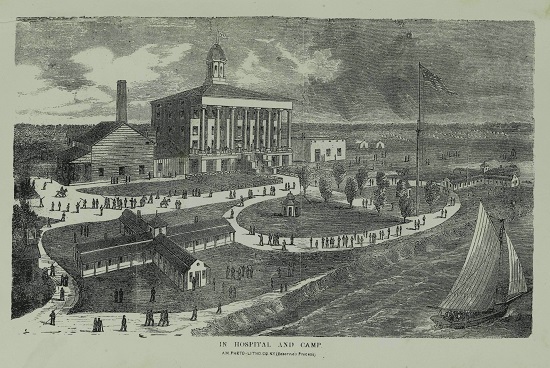
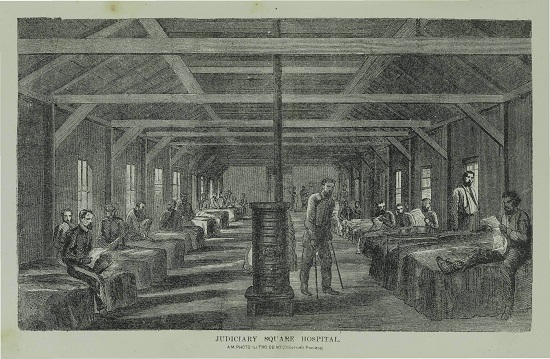
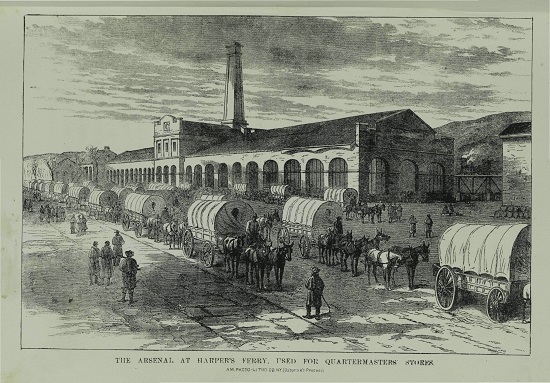

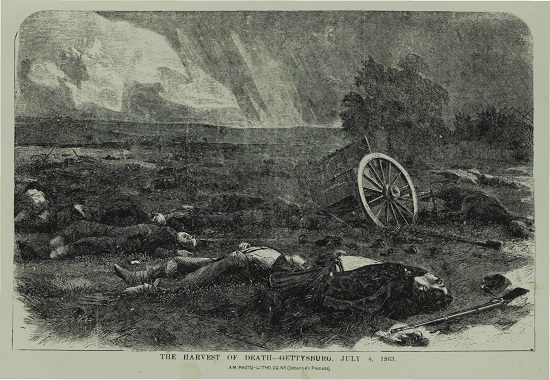
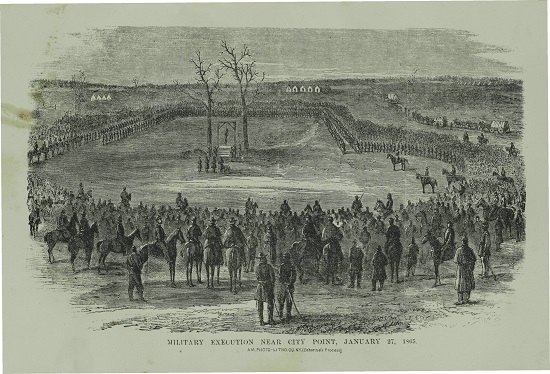

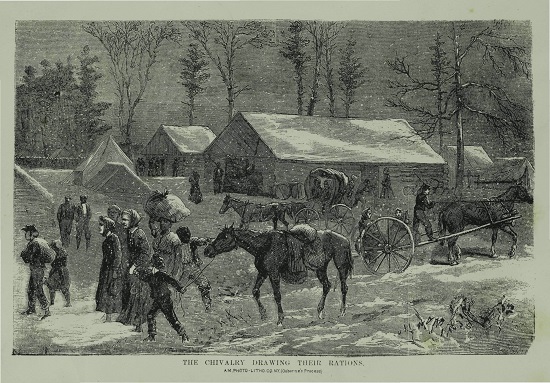
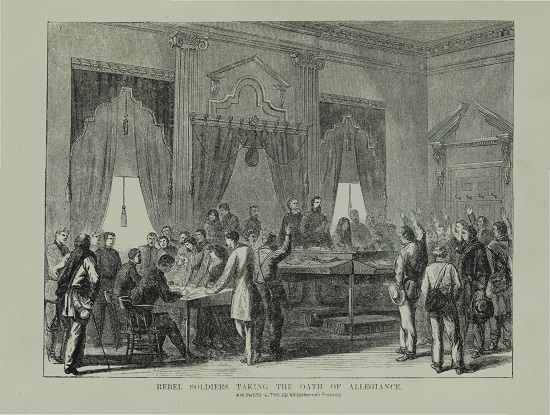
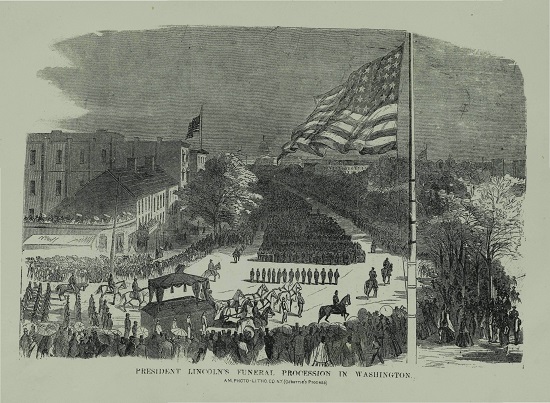
The Old Capitol and Its Inmates. By a Lady, Who Enjoyed the Hospitalities of the Government for a “Season.” (1867)

In April 1865, Washington, D.C. was a cauldron of suspicion and retribution following Lee’s surrender and Lincoln’s assassination. Many people were swept up in the recriminations and punishments that were being exacted on those suspected of Confederate sympathies or, worse, collusion. The author, Virginia Lomax, of this imprint describes her thwarted efforts to secure the release of a friend from one of the prisons in Washington at a time of public agitation:
The whole country was in an intense state of excitement, hunting Booth and his accomplices. Nothing was thought or talked of, but the one great event. It was at this juncture that I determined to pay a second visit to Washington, and endeavor to effect the release of my friends. Had I really understood the true state of affairs, I would have known how futile all efforts at that time would have been. My gentlemen friends did their utmost to dissuade me; but having no very high opinion of masculine moral courage, I determined to take the matter in my own hands and go.
Badly rewarded for her efforts to see her cousin, Lomax is herself imprisoned. The conditions are appalling.
At eight, the door was again unlocked, and two negro women entered, with waiters containing our supper. It consisted of two small coffee-pots, holding about two cups of liquid, a yellow delf [sic] bowl with about one table-spoonful of brown sugar resembling molasses, half a cup of milk, two slices of wheat bread, made out of black-looking flour, a little pat of butter. We had each a yellow delf mug, with blue rings, a pewter spoon (mine had only a small piece of handle,) an iron knife and fork; Mary’s knife was without a handle, and my three-pronged fork was reduced to one, the others being broken, one short off and the other half way…the plates were streaming with dirty dish-water; mugs ditto; knives, forks, and spoons sticky and black to the last degree; sugar full of ants, with a slight sprinkling of flies. The coffee was a decoction of tobacco and rhubarb, I think.
We learn that Lomax’s cellmate, an adolescent girl, had been put by her widowed father to board at the house of Mrs. Surratt and had been arrested along with her. Assuming Lomax is a reliable historian, this connection to the assassination seems notable. Mrs. Surrat was also imprisoned in the same building, and the author reports on her kindness and compassion. Lomax survives her ordeal and is finally released. She concludes her narrative by reflecting on the contentious post-war activities in the U.S. capital.
Address delivered before the Confederate Survivors’ Association of Augusta, Georgia, upon the occasion of its seventeenth annual reunion, on Memorial Day, April 26th, 1895, by Captain F. Edgeworth Eve, president of the association; and the historian’s report, submitted by Charles Edgeworth Jones. Together with Colonel Joseph B. Cumming’s speech introducing General M.C. Butler, General Butler’s narrative, and John R. Thompon’s poem “Lee to the rear” (1895)
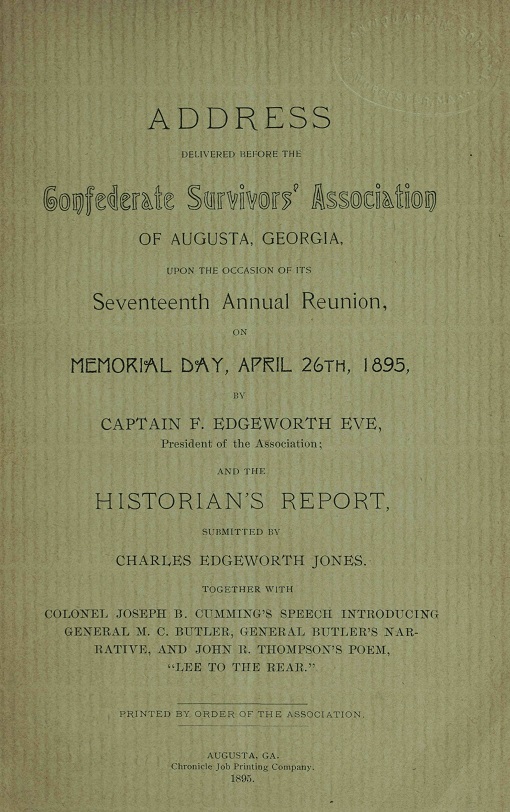
This is an unusual imprint in that it celebrates the Confederate sacrifices made in the war. Captain Eve recounts the deaths of the association’s members since last they convened. What is striking is the myriad ways he chooses to describe death. To wit:
…you followed to the tomb all that was mortal of John E. Bostick…
…the soul of William A. Harris…had ascended to the stars.
…none dreamt that his magnetic and attractive personality would so soon be claimed for higher spheres.
…entered the realm of shadows…
…was added to the silent majority.
…was accorded release from bodily suffering…
…bade adieu to these earthly scenes.
…suddenly closed his eyes on this troublous and sorrow-laden world.
…returned his genial spirit to the divine Master who gave it.
…went to join the Bivouac of the Dead.
For more information about The American Civil War Collection, 1860-1922, or to request a trial for your institution, please contact readexmarketing@readex.com.



